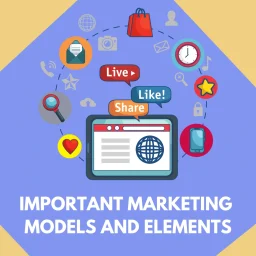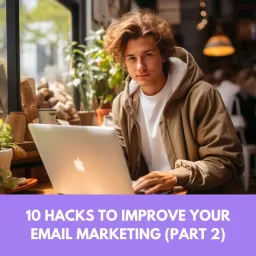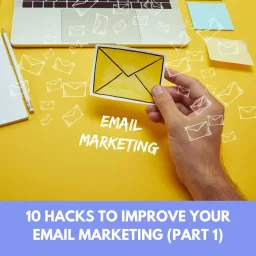If you’re serious about ranking highly on Google SERPs, you’ll want to follow content quality guidelines. E-E-A-T, or Experience, Expertise, Authoritativeness, and Trustworthiness, is part of that process. Each criterion reminds website owners what Google considers high-quality and helpful content. In this blog, we’ll explain the E-E-A-T criteria, how Google uses them, and why they are essential for effective SEO.
What is Google E-E-A-T?
Google E-E-A-T stands for Experience, Expertise, Authoritativeness, and Trustworthiness. It is a handy summary of the criteria used by Google throughout its search quality guidelines documentation. E-E-A-T isn’t a thing in and of itself; instead, it’s simply a handy acronym for webmasters and search quality raters wanting to follow best practices.
For instance, Bing has their own equivalent called Quality and Credibility, or QC, for determining a page’s authority and relevance. Simplifying E-E-A-T is something you should have in the back of your mind whenever you create a page for SEO.
How Does Google Use E-E-A-T?
Google originally created E-A-T in 2016 as part of its Google Rater Guidelines and overhauled it in its Medic Update in 2018. The goal was to protect users from sites offering low-quality information on topics related to money or health, referred to as YMYL or Your Money or Your Life topics. Google introduced the extra E for experience in December 2022.
The search engine wanted to ensure that content based on these sensitive topics was created by genuine, trustworthy sites using credible and reliable sources. Google doesn’t directly look for E-E-A-T as part of its algorithms. Instead, it is used by their quality raters to assess how good a job the algorithms are doing in rewarding helpful and high-quality content. In other words, people, not code, decide.
Unfortunately, for an industry that loves a good metric, there is no way to produce a set score or measure of E-E-A-T for SEO. But that doesn’t mean you’re being left high and dry. Incorporating E-E-A-T into SEO best practices will still generate plenty of benefits for your pages.
Why is E-E-A-T Important for SEO?
E-E-A-T doesn’t have a direct effect on website ranking, but it is still valuable for SEO. Why? Because it informs Google’s overall quality rating for the site. Adhering to the principles of E-E-A-T makes it more likely that the search engine will evaluate your content favourably.
Clear and credible E-E-A-T helps improve Google’s understanding of your domain and where you should be rewarded for your experience and expertise. It’s also 100% white hat – no keyword stuffing or article spinning, just pure value for your website visitors.
Naturally, AI is changing the E-E-A-T game. Interestingly, Google doesn’t prohibit the use of AI content outright, but it does require human review. That’s because AI alone isn’t the best tool. Legal issues aside, there is no way of definitively knowing that what the AI has generated is correct and within the E-E-A-T guidelines. It requires a real person to check the output. Google sees review curation and correction as critical in delivering high-quality results to its users.
Understanding Each Part of the E-A-T Acronym
Now that we understand what E-E-A-T is and how it relates to SEO, let’s break down each part of the acronym:
Experience
Experience has to do with your knowledgeability. You can convey your experience through research, case studies, and demonstrable examples. However, the two easiest ways are with your first-hand knowledge and your own personal experience of the subject matter.
Personal anecdotes and evidenced examples can help demonstrate experience along with a variety of more data-driven indicators. Sourcing external citations for claims you make can also help. It shows you care about fact-checking, have an awareness of other reputable information sources, and aren’t just writing down the first thing that comes to mind.
Expertise
Expertise is all about verifying yourself as a reliable information source. As such, there’s a crossover with experience. You can prove expertise by using relevant technical knowledge and language, quoting data or statistics, getting external experts to vet your content, adding schema markup to your pages, or adding author bios or personal info.
Authoritativeness
Authority is about proving yourself to be a consistent force within your niche with plenty of external support. You can become more authoritative by building in-depth “About Us” pages, gathering social proof such as reviews or testimonials, increasing traffic and engagement, using brand SERP features, building backlinks from high-quality domains, and linking to authoritative external sources.
Together, these factors all help build your domain’s authoritativeness within your niche. Niche-relevant links, traffic, and user engagement will all help build your appearance of authority.
Trustworthiness
Trustworthiness refers to how much your pages align with Google’s guidelines and ethical concerns. It’s Google’s answer to bad faith online actors using shady tactics. You can win Google’s trust by keeping your SSL certificate up to date, gathering good reviews, responding to negative reviews, offering secure payment gateways, and making sure your name, address, and phone number are consistent across the web.
And finally, remember to eat your greens! As you craft content, keep Google’s quality rater guidelines in mind. They’re what search quality raters use to determine your site’s E-A-T performance. Hit all these points, and watch your site’s visibility skyrocket.
FAQs
1. Does E-E-A-T directly impact website ranking?
No, E-E-A-T doesn’t have a direct effect on website ranking. It informs Google’s overall quality rating for the site, but it is not a ranking factor on its own.
2. Can AI-generated content meet the E-E-A-T guidelines?
No, AI-generated content alone cannot meet the E-E-A-T guidelines. Human review is necessary to ensure the content aligns with E-E-A-T principles.
3. How can I improve the authority of my website?
To improve the authority of your website, focus on building in-depth “About Us” pages, gathering social proof such as reviews or testimonials, increasing traffic and engagement, using brand SERP features, building backlinks from high-quality domains, and linking to authoritative external sources.
4. What can I do to gain Google’s trust?
To gain Google’s trust, keep your SSL certificate up to date, gather good reviews, respond to negative reviews, offer secure payment gateways, and ensure your name, address, and phone number are consistent across the web.
So there you have it. We’ve described what E-E-A-T is and how you can adhere to it effectively. Remember, you can’t measure it with standard SEO metrics. You’ll just need to bear it in mind whenever you craft content for your site and then monitor how consistently your pages rank and how users engage with your content.
Interested in seeing more of our guides, advice, and articles on marketing apprenticeships?
Then sign up for our monthly newsletter. We’ll send you all the information on our latest stuff and general updates as well. Sign up below!

















